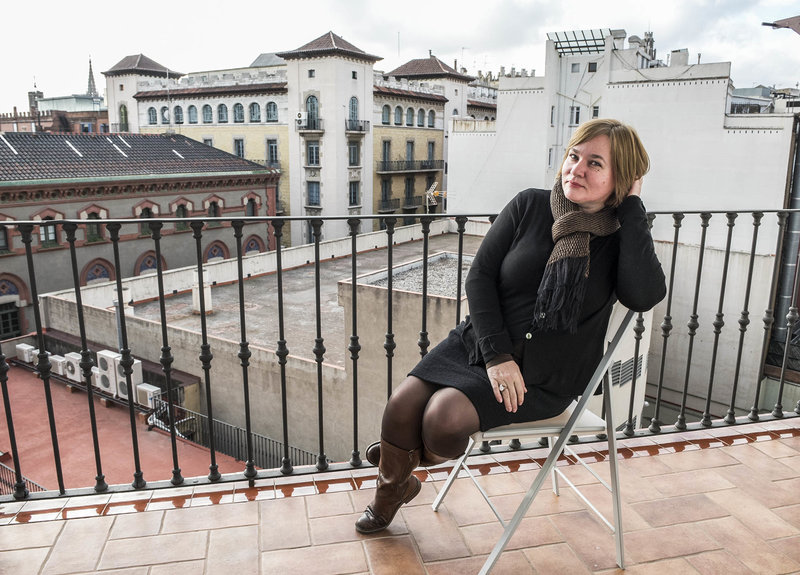The homeland of affection
Stefanie Kremser presents, The Day I Learned to Fly, a novel that tells of how a girl searches for her mother though in a spirit of joyfulness and vitality
It is a hymn to freedom and a shameless antidote for ill feeling
Stefanie Kremser (Düsseldorf, 1967) has a German mother and a Bolivian father and lived from the age of seven to 20 in Brazil: “When they ask me how I class myself I don't seem to fit into any drawer,” confesses the author. This is just one of many dramatic elements reflected in her novel, The Day I Learned to Fly, published in 2014 and translated from the German into Catalan by Anna Punsoda.
“The theme of the book is largely the story of an abandoned child searching for her mother, but treated in an unusually joyful way. It is a hymn to freedom and a shameless and irreproachable antidote for ill feeling, because the homeland of the protagonist is affection,” says editor Josep Cots
“I got the idea in 2000 but did not publish the work in Germany until 2014. It is a book about immigration and migration, and spans 120 years,” the author explains in impeccable Catalan. Writing “Postal de Copacabana” (Club Editor), and in 2012 “Carrer dels oblidats” (Empúries), a thriller, obliged her to be “more realistic”.
The Day I Learned to Fly is divided into three parts. At the beginning, the abandoning of the girl is narrated in a very striking and personal manner: “I think of the reader when I write, and try and establish some sort of dialogue where he or she decides a lot of things,” says Kremser. This has benefits: “No one can know what happened even before birth,” and the protagonist, Luisa, is a girl who seems innocent but is quite a character, which is one of the strong points of the book. Therefore, right from the beginning, the reader is immediately involved.
Paul, Luisa's German father, raises the girl in a student flat in Munich. Luisa is always asking about her Brazilian mother and so she and her father head off to a Bavarian village in the jungle. It is a place inspired by Pozuzo Prussia, built around the 1860s by Bavarians and Tyroleans as if they were still in Europe, but in the Peruvian jungle. A most curious and little known event.
Kremser's portrayal of the villages she visited, and the story of Aza, Luisa's mother, take up the second part of the book. “There are two kinds of immigrants, those who mix and become integrated into their new home, and those who remain isolated.”
“Just how important are roots and traditions? I think it's healthier, it is better to break this thing that seems to be inbred in us,” says the author, who also addresses and questions the family model.
Questions of migration
She also questions emigration and immigration: “In Germany, people do not know that Germans are also migrants, perhaps it doesn't fit in with the idea of being such a strong country; they know nothing of the millions of Germans scattered around the world. In Brazil, Germans, Italians and Japanese are the most influential, socially and culturally.”
In the third and final part of the book, father and daughter go to São Paulo, following in the steps of the mother. “I put Luisa's birth in 1993 for two reasons, because there are historical parts in the book and I want to connect that to the present but also to distance myself and not to fall into trap of talking about my own life,” she says.
The book is a story that speaks of loss and searching, family models, immigration, roots but, without any judgements, invites the reader to participate. And there is an ending that leads to an enriching debate, and that is always appreciated.
“There are many tragic stories, but these are natural and, at times, joyful, and this makes them more believable,” says the author, who has created a voice and a viewpoint, that of Luisa, who stays with you long after you put down the book.

